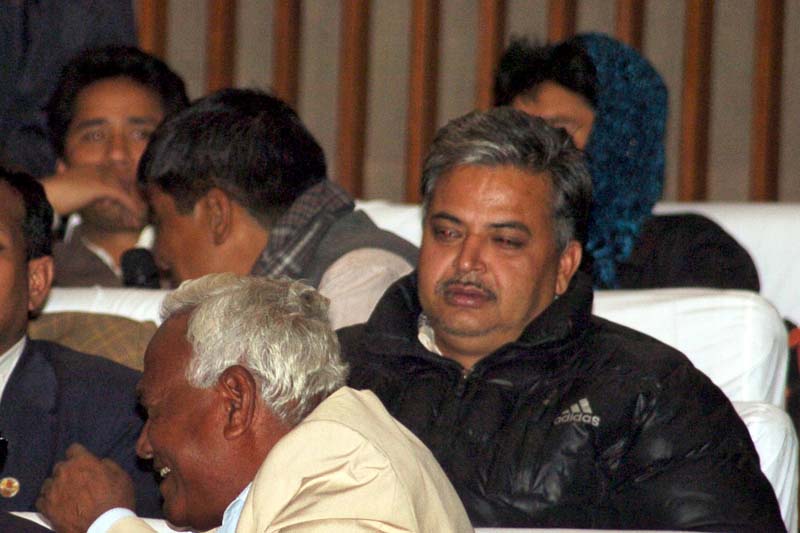SC denies clemency to former UCPN-M lawmaker Dhungel
Kathmandu, January 7
The Supreme Court today quashed the Baburam Bhattarai-led government’s decision to pardon former Unified CPN-Maoist lawmaker Bal Krishna Dhungel, who was convicted of the murder of Ujjan Kumar Shrestha, a resident of Okhaldhunga.
According to spokesperson for the SC Nahkul Subedi, the SC observed that as per Article 276 of the new constitution, the government, in the absence of amnesty law, cannot take decision to pardon somebody.
This verdict was delivered on the writ petition filed by victim’s sister Sabitri Shrestha.
The bench quashed the Bhattarai government’s decision to pardon Dhungel, saying that the decision was aimed at favouring somebody who had not honoured the court’s verdict and if such an act was allowed to happen, it could violate the right to equality, fair trial, and finality of judgment and the rule of law.
The court also observed that in this case, the person convicted by the court had not surrendered himself as per the court’s verdict, the process of judgment execution had not started yet and the process determined by amnesty law had not been followed, according to Subedi.
The apex court also issued a writ of mandamus telling the government not to pardon Dhungel.
Shrestha was murdered on June 24, 1998, at Tarkerabari of Okhaldhunga and his body was thrown into a river.
Bhattarai-led government had decided to pardon Dhungel on November 8, 2011, against which the victim’s sister Sabitri had filed a writ of certiorari at the apex court on November 10, 2011.
Dhungel was convicted in the case by the district court but was acquitted by the appellate court, Rajbiraj.
The Supreme Court, however, upheld the district court’s conviction that had sentenced Dhungel to life imprisonment with confiscation of his property. His conviction was upheld by the SC on January 3, 2010.
He had spent almost eight years in prison during the trial.
After Rajbiraj appellate court acquitted him of murder charge, Dhungel contested and won the 2008 Constituent Assembly election.
A constitutional bench of Chief Justice Kalyan Shrestha, Sushila Karki, Baidya Nath Upadhyay, Gopal Parajuli and Om Prakash Mishra passed the order on the writ petition.
Bhattarai-led government had forwarded Dhungel’s name for presidential clemency in November 2011 but in the face of growing controversy the President had sent the case back to the government.
Bhattarai-led government had argued that the transitional justice mechanism should deal with Dhungel’s case, as the matter was political in nature.
In her writ petition, victim’s sister said her brother was killed due to personal enmity and not due to political reason and since Dhungel had been defying Supreme Court’s verdict and evading arrest, he did not deserve to be considered for presidential pardon.
The petitioner said she had filed a case demanding execution of apex court’s verdict. She added that at a time when the case was sub-judice, the Bhattarai-led government decided to pardon Dhungel and argued that execution of that decision would be against the rule of law and constitutional supremacy.
Shrestha alleged in her petition that Dhungel was also responsible for the murder of her elder brother Ganesh Kumar Shrestha and death of her niece Ranjana (daughter of Ganesh Kumar) who slipped into depression after her father was killed by Maoist cadres and committed suicide.






